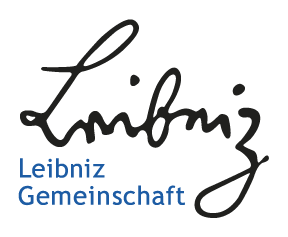New ConDIDi project extends Self-Sovereign Identity (SSI) to academic conferences
TIB – Leibniz Information Centre for Science and Technology and Jolocom team up in EU-funded pilot project extending self-sovereign identity services to academic conferences
Edited and enhanced version of the announcement originally written by Irene Adamski and Sean Baldwin-Stevenson (Jolocom)
The TIB – Leibniz Information Centre for Science and Technology and Berlin-based Startup Jolocom have jointly applied for an EU grant under the Next Generation Internet initiative for Human Centric Solutions. The project is named ConDIDi — Conference Digital Identifier Integration — and the aim is to use Self-Sovereign Identity (SSI) concepts to make it easier for conference organizers and participants alike to track credentials and reputation, while automatizing data protection & privacy and facilitating interoperability across global academic identification systems, like ORCID and ROR.
The challenges of academic conferencing
In the scientific community one of the most important assets an individual or an institution can possess is a good reputation. Professional reputations are often built up via publication numbers and garnered in peer review.
Academic conferences play a vital role in enabling and promoting peer review, while also providing the foundations for future publications via conference proceedings. Proper conference management is therefore crucial for the academic community.
However, due to limited funding and staffing, very often the management and participants of a conference have to contend with various delays, cancellations, misalignments, and even occasional failures to provide information – be that before, during or after a conference. Particularly where the time after a conference is concerned, the lack or delay of publicly shareable professional credentials (such as proof of participation or a publication) can have significant consequences and unfavorable repercussions in the academic sphere, for the career tracks of individuals or funding opportunities for individuals or departments.
For organizations which host conferences and event facilitators, keeping track of participants and providing subsequent services (e.g. provisioning proofs of participation, vetting presenters, ensuring panel diversity, collecting attendee information and confirmations) can be a resource-draining process. Smaller departments are often led to foregoing conference hosting despite high-quality content.
These challenges serve to exacerbate the problem of non-diversity and unintentional glass ceilings due to lack of information on participants or due to infrastructural bias towards established conferences or organizations.
Full lifecycle conference credentials with ConDIDi
ConDIDi seeks to reduce the management burden on both parties by providing solutions which equip participants with technology for self-sovereign identity, like Decentralized Identifiers (DIDs) and Verifiable Credentials, for their participation at academic conferences. Automatizing the process of verifying that participants have fulfilled requisite criteria (e.g. have paid their participation fees, satisfied requirements for paper submission, agreed to chair a panel, checked into the venue, etc.) would reduce a large part of the bureaucratic and time-consuming overhead of conference management.
At the same time, traditional uncertainties and demand for further assistance from conference management can be minimized if participants were able to automatically receive proof of their participation and relevant participation information (e.g. the participant’s role as presenter, chair, author in a pending publication, etc.), and also share those documents with third parties. Additionally, it will become easier for third parties (e.g. university hiring committees, publishing houses, head-hunters, external conference speaker selection committees) to find and verify the reputation of individual academics based on specific criteria.
TIB and Jolocom
TIB, based in Hannover, is one of the pillars of the German research infrastructure community and has recently gained recognition for leading the German ORCID consortium (a global system for identifying academic authors, independent of name duplications or differing naming conventions based on language) and ConfIDent (a pilot project to catalogue academic conferences and afford greater visibility to small or newly-established conference events) — two projects among many to establish globally verifiable IDs for academic personnel and conferences and thereby increase transparency and equity within the field.
Jolocom is a leading steward of SSI in Europe with a long-term commitment to open source and open standards. They will bring their full tech stack for SSI (including library, SDK, SSI protocol and Jolocom SmartWallet end-user application), as well as technical expertise and a production-ready SSI wallet to ConDIDi, with the express goal of accelerating the deployment of DIDs and Verifiable Credentials, ensuring the interoperability of available solutions and increasing the self-sovereignty of users.
TIB and Jolocom have both been early adopters and pioneers of Distributed Ledger Technologies and the Web 3.0 approach in Germany. Multiple encounters within the DLT community have led to a growing interest in joining forces on behalf of open standards, open access, and interoperability. The chance to build a human-centric solution that implements the Self-sovereign Identity approach in the academic sector while also increasing global collaboration and interoperability due to the gradual integration of different solutions (ORCID, ConfIDent, ConDIDi) into one system were the deciding factor in jointly applying for the NGI LEDGER grant.
What’s next for ConDIDi?
The ConDIDi project was selected out of 300+ applying projects for the shortlist in March, and went on to be chosen as one of sixteen projects to receive official funding. In July the project will begin working toward developing a market-ready MVP as the acceleration program commences.
LEDGER EU and the NGI initiative will support both the development of a sustainable business model, as well as ensuring that the technical development stays on schedule and delivers a working solution. After the 12-month program, three of the 16 grantees will be selected for additional funding to support market introduction and dissemination of the solution.
To learn more about ConDIDi, visit projects.tib.eu/condidi. Funds granted within the LEDGER project come from the H2020 Programme. The Next Generation Internet initiative is part of the Digital Single Market efforts of the EU Commission. Bibliothekar. 🤓
#NextGenerationInternet
#HumanCentricSolutions
Leitung Open Science Lab der TIB.
Folgt mir unter https://openbiblio.social/@Lambo //
Librarian. 🤓
Head of Open Science Lab at TIB.
Follow me at https://openbiblio.social/@Lambo



0 Antworten auf “New ConDIDi project extends Self-Sovereign Identity (SSI) to academic conferences”